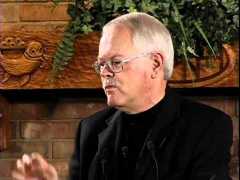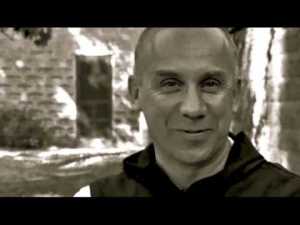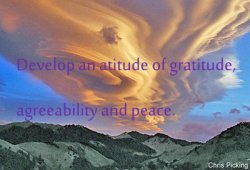God said to Amos, shepherd and dresser of sycamores, “Go to my people and warn them.”
To Ignatius Loyola, a soldier and vain, God said, “Teach my people how to pray.”
To Dorothy Day, an agnostic journalist God said, “Shelter the homeless.”
To Mother Theresa, a simple religious from a poor, East Bloc country He said, “Care for my poor.” (From, Anne Osdieck, “Praying Towards Sunday“)
You say the same to us too, Lord. What are you saying specifically to me?
An idealistic young priest once visited Thomas Merton at the Trappist monastery in Kentucky and spoke to him about his agony over social justice issues. The monk sad, “I know it’s wrong, and sometimes I can hardly face myself in the mirror for going along with things as they are. Yet I don’t know what to do. What can I do?”
Merton replied, “Don’t do a damned thing. Just take the time to become what you profess to be. Then you will know what to do.”
If Merton had less credentials in the area of social justice, his answer could easily be seen as a rationalization, an excuse to escape involvement. Given his record, however, it is a profound answer. The answer of a saint to the agonizing question: What can I do in the area of social justice?
What can we do? In the circles that I move in, on this question, there is enough talk, enough agonizing and enough guilt, but little in the way of practical action. At our roots, many of us feel that we need to do something about injustice and poverty. We feel guilty about being affluent, but we feel helpless:  “I have enough problems of my own! I have trouble paying my own mortgage, how can I save the world!” Or, as a friend of mine recently said: “I don’t know what to do. So I go to a lot of meetings and read a lot about poverty and the Third World. It’s making me more sensitive and assuaging my guilt somewhat, but, in the end, I am still not doing anything concretely.”
“I have enough problems of my own! I have trouble paying my own mortgage, how can I save the world!” Or, as a friend of mine recently said: “I don’t know what to do. So I go to a lot of meetings and read a lot about poverty and the Third World. It’s making me more sensitive and assuaging my guilt somewhat, but, in the end, I am still not doing anything concretely.”
What finally can we do?
Merton’s answer is that if we don’t know what to do, then we are still not ready to do anything. If our service, our prophecy and our resistance are self-seeking, motivated by guilt, distracted by woundedness, bitterness or anger, then any action is NOT anointed and NOT from the Lord.
However, this is also NOT a license for inactivity. Rolheiser continues:
To be a prophet of justice, or an instrument of peace or a channel of graciousness it is necessary that one be living more in gratitude than in giving begrudgingly, agreeability rather than anger, more in the posture of praise than paranoia.
Albert Tate is Senior Pastor of Fellowship Monrovia Church in Southern California. He comments on developing a life of gratitude, agree-ability and praise:
This is not easy. Justice, prophecy and service flow from a life which is full of gratitude, celebration and deep friendship. And these are the bi-products of contemplative prayer. “If you’re not resting in God, then you’re not trusting in God.” When these elements are there, one automatically knows what to do!
Oh God of peace, you have taught us that in returning and rest we shall be saved; that living in quietness and confidence shall be our strength; by the might of your Spirit lift us, we pray, to your presence - where we may be still and know that you are God.
A number of parishioners from St. Monica and several other parishes nearby and in Delaware participated in the Called & Gifted™ workshop and “Spiritual Gifts Discernment” process last year and this year. In the process, we learned:
- Our role as Catholics in the local parish and in the mission of the Church to the world.
- The critical role of charisms in the life and service of other lay Catholics and in the life of the parish.
- The signs and characteristics of 24 common charisms.
- How discerning and using our charisms could affect our life, the lives of others, and our parish, often in deep and profound ways.
Several items struck me going through the process:
It was arduous.
There was a gentle but persistent “pull” to prayer, quiet time and simply doing nothing with the Lord.
It seems as if the Lord was constantly rearranging my calendar and the events of the day to offer those opportunities for quiet time.
There was a greater sense of the Church in that I knew that others we’re going through the same struggles wrestling with God and with themselves and thus were committed to pray and intercede on my behalf.
We didn’t necessarily get all the answers from God about our lives but God definitely moved in people’s lives to indicate that what we were doing pleased him and that the direction we were moving in was the right way.
This seems to reflect the spiritual challenge alluded to by Pastor Tate. So if you want to develop an attitude of gratitude - and agree-ability - and peace and want to know what “to do” in order to get there, the answer just might be… for now, do nothing.
Audio version of the homily is here:


